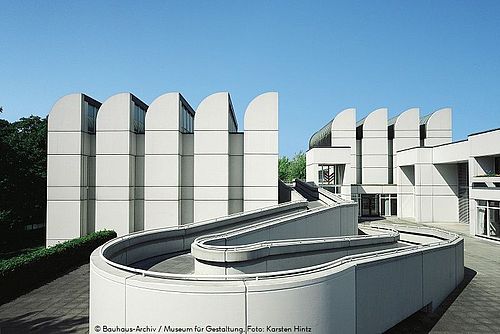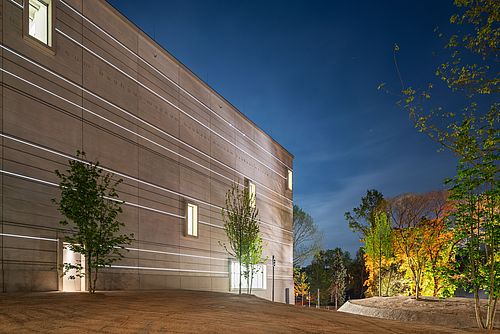About the Bauhaus Kooperation
The Bauhaus Kooperation is an affiliation of the three German institutions in Berlin, Dessau and Weimar maintaining Bauhaus collections. On behalf of the Bauhaus Association, it is a non-profit limited liability company that serves as the operating body for the Bauhaus centenary in 2019 and maintains the head office for this purpose. The Bauhaus Kooperation will continue to function as a non-profit organisation beyond the year 2019, coordinating cross-institutional projects.
The Bauhaus Kooperation Berlin Dessau Weimar gGmbH
The Bauhaus Kooperation comprises three Bauhaus institutions, the Bauhaus-Archiv / Museum für Gestaltung, Berlin, the Bauhaus Foundation Dessau, and the Klassik Stiftung Weimar. They jointly dedicate themselves to research and exhibition projects that are superordinate at the national and international levels. As part of the Bauhaus Association 2019, the Bauhaus Kooperation has authority for the office in Weimar, and all three of its component institutions are behind the projects “Bauhaus Agents”, “Bauhaus Imaginista”, “Opening Festival”, and “Grand Tour of Modernism” for the 2019 centenary.
The Bauhaus institutions
The Klassik Stiftung Weimar is a non-profit foundation under public law and oversees 25 cultural and research institutions, collections and museums in the Weimar area, among these the Bauhaus collection, the Nietzsche archive and the Haus Hohe Pappeln.
The Bauhaus Dessau Foundation is the host of the Bauhaus as a scientific and artistic place. In university and residential programmes, academic knowledge is replaced by collective learning, teaching and research in the tradition of the historical Bauhaus. In addition, the foundation cultivates and passes on the diverse non-material and building heritage of the Bauhaus in Dessau. Since 1996 the Bauhaus and its Master Houses in Dessau have been part of the UNESCO World Cultural Heritage.
The establishment of the Bauhaus-Archiv / Museum für Gestaltung in Berlin was based on an initiative of Walter Gropius and today owns the largest collection worldwide on the history of the Bauhaus (1919–1933). Here numerous key works are presented and international research projects are carried out. Furthermore, the Bauhaus Archive increasingly devotes itself to questions on contemporary architecture and current developments in design.


